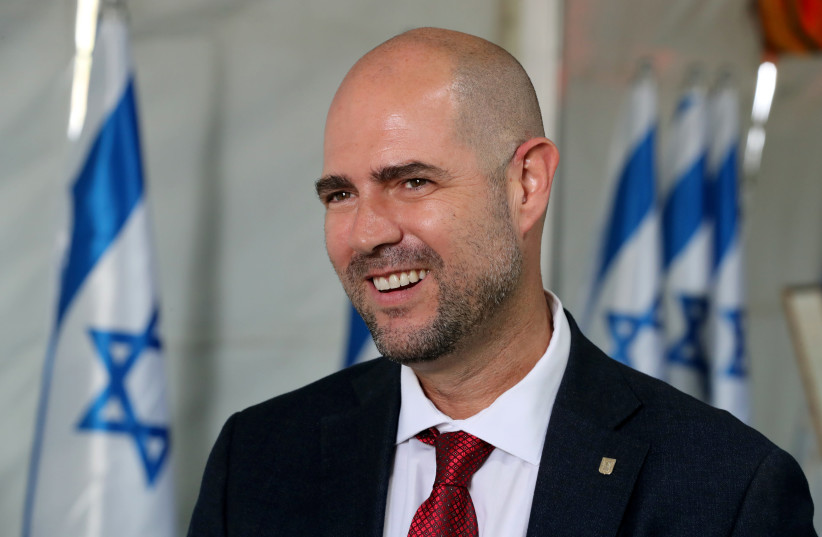In June 2019, just as Amir Ohana was becoming the new interim justice minister, he set off an earthquake in the political and legal establishments.
Statements he made at the time led to unprecedented public counterattacks from Supreme Court President Esther Hayut, then attorney-general Avichai Mandelblit, former deputy chief justice and moderate conservative jurist Elyakim Rubinstein and others, leading Ohana to back down.
Saturday night, Shas Party leader and two-time public corruption convict Arye Deri made a much more direct and audacious attack on the legal establishment, and the public punishment he has taken for it has been minimal.
Why did Ohana and Deri get different responses to their attacks on Israel's Supreme Court?
Why are the responses different this time? Because the world of late 2022 is radically different and more polarized, with little left of consensus or bipartisan respect for state institutions, than what existed in mid-2019.
In-mid 2019, Ohana vaguely said he would consider disobeying certain rulings of the Supreme Court, but there was nothing concrete about his threat. In context, it seemed like a campaign line to show how tough he was.

Hayut responded, “Every litigant can now, with the justice minister’s blessing, choose which judgments to uphold and which to not uphold. I want to say only one thing about this… this is the short path away from anarchy.”
“Every litigant can now, with the justice minister’s blessing, choose which judgments to uphold and which to not uphold. I want to say only one thing about this… this is the short path away from anarchy.”
Israeli Supreme Court President Esther Hayut
Mandelblit said observing the decisions of the courts “is not optional; it is an obligation imposed on every citizen and every authority figure.” If court decisions were not followed, the bedrock of the country’s rule of law itself would be undermined, he said.
Ohana retreated within only three hours, saying he would still respect court decisions the vast majority of the time.
It also seemed evident that there was no one on the Likud bloc side of the political spectrum backing him up.
But that was in 2019. This is 2022.
It has left us in a situation in which the idea of fundamentally reordering the legal establishment has moved from being a fringe idea accepted only by the most extreme on the Right to being a mainstream view endorsed by opposition leader Benjamin Netanyahu.
In this context, Deri talking about getting his own personal special treatment along with special treatment for Netanyahu’s public corruption case is no longer very controversial for approximately half of the country.
It no longer matters that he is talking about playing with the political system for personal gain to effectively wipe out the impact of a recent second public corruption conviction that Deri himself admitted to in a plea deal.
There seems to be little thought about what impact such a change would have in potentially leaving a vast number of other public servants impervious to public corruption charges. The only thing that matters is if you’re pro or anti Bibi, pro or anti the legal establishment.
Some might blame the latest issue with Deri on Mandelblit, claiming that Mandelblit could have filed a more severe indictment against Deri or refused any plea deal that did not end in a finding of moral turpitude.
They would also say he could have proceeded to trial or demanded the court decide the moral turpitude issue in January, when there was no election in play.
But the impression is that his view would be that the evidence simply did not chalk up to bribery and that the low-grade tax-evasion charges were all that could be proven in court.
Likewise, he would note that by Deri choosing to resign, there was no legal basis for the prosecution or the court to rule on the issue of moral turpitude.
This would be based on the legal principle of premature versus ripeness, i.e., ruling on being unfit to be in office cannot only take place if a person is in office at the time.
Mandelblit would support his view, citing previous rulings allowing Deri to continue in office between his first and second convictions based on the idea that he could choose to run Shas without an official position.
In fact, Mandelblit would say the core issue here is not Deri at all, but whether the legal establishment as we know it will continue after this election or whether Israeli democracy is about to flip.
If the existing rule of law prevails, the expectation would be that Deri won’t be allowed to hold official public office, whereas if the next government gives itself an unlimited simple majority veto over High Court of Justice decisions, Deri will be the least of the legal establishment’s worries.
